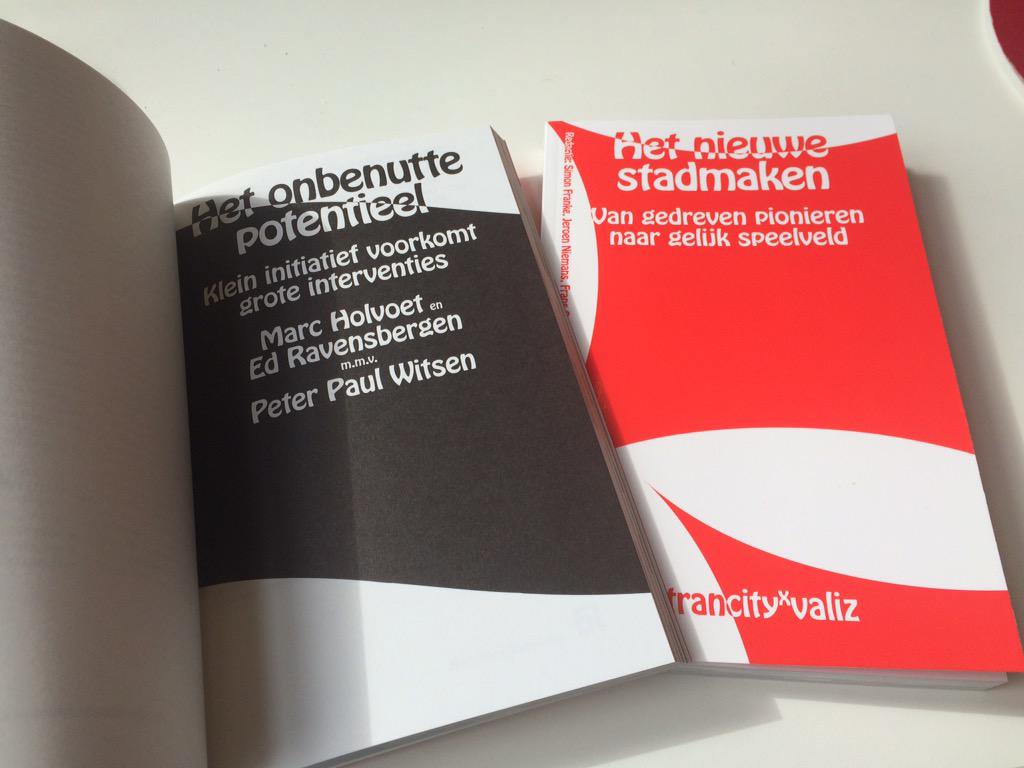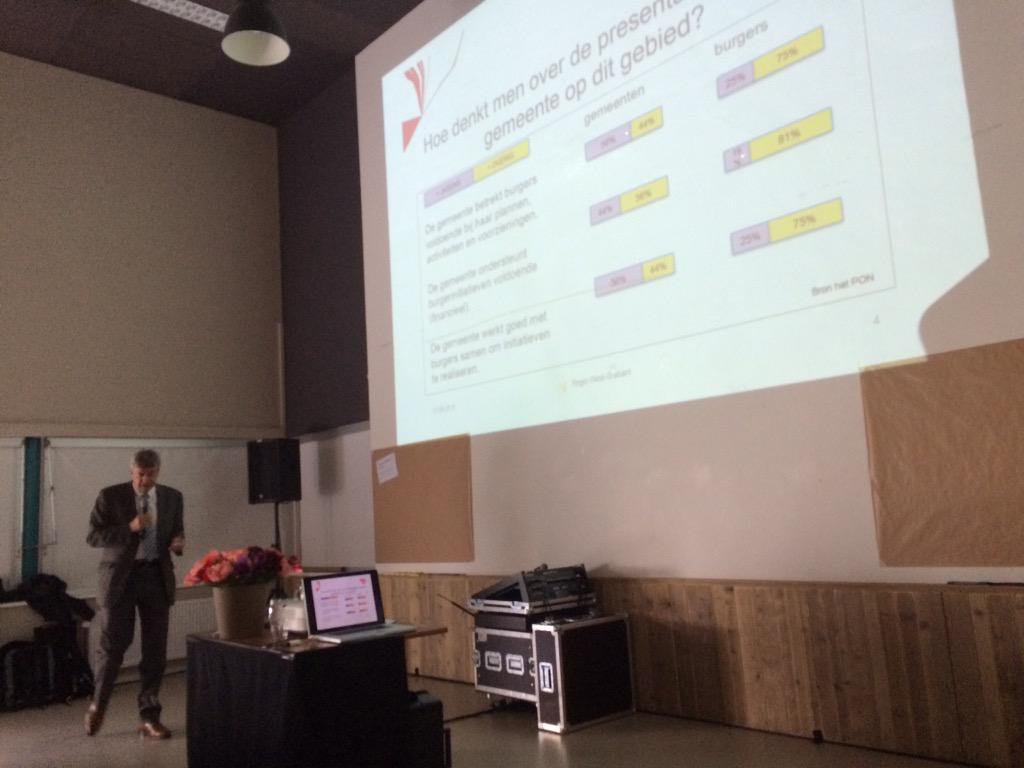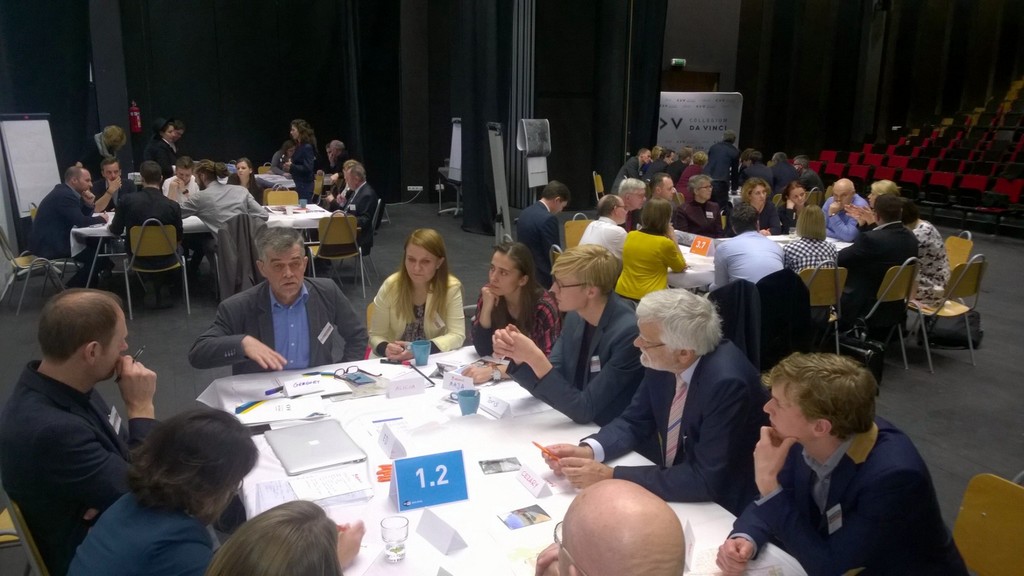Bouwstenen Leefbare Wijken (BLW)
onderzoek eindrapport
methodiek
logboek 1/5
26 02 2016
Komt u op donderdag 21 april naar onze werkconferentie 'Bouwstenen voor Leefbare Wijken' over #stadmaken en #wijkverbetering?
2016 01 26
Kick-off BLW Hoge Vucht met Wijkavontuur Hoge Vucht. #Bouwstenenvoorleefbarewijken
19 01 2016
Maurits Heuijmans van de Wijkraad Brabantpark op bezoek bij de NHTV voor de vervolgstappen van BLW #wijk_brabantpark
07 01 2016
Gesprek Ricky Veth en Sussane Smits. Waar liggen de kansen voor BLW binnen de zorg? #Robuust #NHTV #NIEUWBRUUT
07 01 2016
Gesprek Harold van den Velde van de Gemeente Halderberge. Wat is de volgende stap voor ‘Nieuwe Wijk- en Dorpsculturen’? n#Bouwstenenvoorleefbarewijken #RWB #NHTV #Nieuwbruut
10 12 2015
SIA congres. Onderzoeksbijeenkomst naar ‘Smart Cities’ voor hogescholen. #NHTV
03 12 2015
Gesprek met Wiet van Meel over de relatie en kansen tussen BLW en Tussenheid. Hoe kunnen we initiatieven nog succesvoller maken?
26 11 2015
Festival Ruimtelijke Kwaliteit in Den Bosch
22 10 2015
Stadslab Breda #Bouwstenenvoorleefbarewijken #NHTV #NieuwBruut
09 10 2015
NHTV/NIEUWBRUUT @ TEDx Breda : The Future City’ #Bouwstenenvoorleefbarewijken #NHTV #NieuwBruut
02 10 2015
Workshop ‘Bouwstenen voor Leefbare Wijken’ tijdens Meaningful Meetings. #Bouwstenenvoorleefbarewijken #NHTV #NieuwBruut
30 09 2015
Stadslab Breda #NHTV
28 09 2015
Scenario voor de documentatievideo van Theresia is af!
25 09 2015
Bezoek stadslab Harderwijk #NHTV
11 09 2015
10 jaar Trancity. Een feestelijke terugblik op ‘Het Nieuwe Stadmaken’. #Bouwstenenvoorleefbarewijken
07 09 2015
Introductie ‘De Moderne Stad’. Studenten Mobiliteit, Urban Design en Planologie buigen zich over de toekomst van toekomstige steden en wijken.
27 08 2015
Stadslab Breda. Hoe kunnen onderwijs, overheid en partijen hun kennis inzetten om initiatieven in de stad Breda succesvol te maken.
30 07 2015
Mogelijkheden bekijken voos slagingskans #mijnbuurtje in Theresia.
23 07 2015
Gesprek met Menno Moen of de kansen van van samenwerking tussen de Gemeente Eindhoven en de NHTV #NHTV #Bouwstenenvoorleefbarewijken
09 07 2015
bezoek Surplus Welzijn / kennismaking werk Rashad Willemsens, opgaven in de wijk #Nieuw Bruut #Bouwstenen voor Leefbare Wijken
27 06 2015
Festival Mundial gaat van start, Tilburg bruist! #Mundial15
M11-1 Kennisdeling
In het onderzoek stond kennisdeling centraal. In binnen en buitenland zijn de opgedane onderzoeksresultaten breed gedeeld...
Het Nieuwe Stadmaken

Op 1 juni 2015 vond in Pakhuis de Zwijger in Amsterdam de presentatie plaats van de publicatie Het Nieuwe Stadmaken van uitgeverij Trancity. Deze bundel essays signaleert een sterke groei van lokale initiatieven in de leefomgeving. De vraag wordt gesteld hoe lokale initiatieven kunnen doordringen in de institutionele praktijk van ruimtelijke ordening en stedelijke ontwikkeling.
Nieuwbruut/NHTV is uitgenodigd om een van deze essays te verzorgen. In samenwerking met Peter Paul Witsen schreven wij 'Het Onbenutte Potentieel. Klein initiatief voorkomt grote interventies'. Waarin wordt gekeken naar kleinschalige burgerinitiatieven in relatie tot ruimtelijke ordening op de regionale schaal.
NWDC - Nieuwe Wijk- en DorpsCulturen

De werkconferentie NWDC - Nieuwe Wijk- en DorpsCulturen vond plaats op 17 juni 2015. Deze werd georganiseerd door de Regio West-Brabant (RWB), de Provincie Noord-Brabant en het samenwerkingsverband Nieuwbruut/NHTV. Het evenement vond plaats in een prachtig voorbeeld van burgerinitiatief: buurthuis ONS in Geeren-Zuid in Breda.
Fons Naterop verzorgde de opening van de werkbijeenkomst. Naast burgemeester van Aalburg is hij bestuurlijk trekker van de Regio West-Brabant. Na een plenair gedeelte volgden er interactieve deelsessies, waarin deelnemers bij verschillende L@B-projecten kennis konden opdoen.
Workshop in Poznan (PL)

Op 19 november vond de conferentie Cities In Transition plaats in de stad Poznan in Polen. Op uitnodiging van de stad Poznan, het DaVinci-college en de Nederlandse Ambassade gaven wij een workshop over leefbaarheid.
De bijdrage van Nieuwbruut/NHTV bestond uit het modereren van de workshop over Leefbaarheid in Poolse steden. Centraal stond de vraag hoe de Nederlandse en Poolse situatie met elkaar konden worden vergeleken, en of de twee landen op dit gebied van elkaar konden leren.
Samenvatting:
Workshop 19 november 2015 - 'Cities in Transition' - Poznan Table 1.2 - The Livable City
Moderators:
Joris Klein (NHTV Breda, NL)
Ed Ravensbergen (Nieuwbruut, NL)
Participants:
Maja ... (City of Poznan, PL)
Alicja ... (City of Poznan, PL)
Agnieszka Murawska (Dutch Embassy, PL)
Cezary Golebiowski (Ecorys, PL)
Grzegorz Wieczorek (Tebodin, PL)
Baptist Brayé (Locatus)
Tracy Metz (Journalist, NL)
Gerben Boink (Student NHTV Breda, NL)
Marjolein Pauli (Student NHTV Breda, NL)
Structure Reacting to the lectures in the morning, we decided to kick-start the discussion by adressing the subject of 'liveability in the city in general'.
The workshop consisted of three parts:
Exploration of the current situation of Polish cities. Which issues can be identified, which problems should be tackled? How can the Polish and Dutch situation be compared?
A short presentation of 'Building Blocks for Liveable Cities', a research project by NHTV/Nieuwbruut as a Dutch perspective on liveability.
Inventory of the essential values of a liveable city and solutions for the problems of Polish cities.
After hearing the lecture of Piotr Libicki on Polish cultural values and ideals, we asked the participants of the workshop where they would rather live: They could choose between a Polish mansion in the countryside -portraied as the historic common ideal- or a house in a Polish city? To our surprise all participants unanimously preferred living in a city over a house in the countryside.
But Polish cities, Poznan included, are facing many challenges: congestion, vacant buildings in the historic centers, poor infra-structure and public transport, mono-functional residential areas and bad allocation of amenities. Apparently many people want to live in a city, although conditions are far from perfect at the moment. During the discussion several reasons were proposed for this.
Many local governments struggle to make financial ends meet. Because of this, spacial planning is often incoherent, incomplete or poorly executed in many places. This leaves much power and influence in the hands of private companies who are inclined to fill this vacuum. As a consequence 'ground speculation?' dictates spacial planning, which serves mainly private needs. Projects are developed that aim for market-optimalisation with short term profits. The public needs have no short-term revenue, so they end up with lower priority. And legal obligations to prevent this are not there. Consequently, large mono-functional areas are developed with poor quality of public spaces and infrastructural networks. The basic amenities are few and badly allocated, or non-existent.
Local governments should support and facilitate (or protect) inhabitants that are eager to improve their surroundings by developing civic initiatives. If a group or individual wants to start a local business that has a potential to improve the liveability in a certain neighborhood, then the government should be able to help. Even though the existing structures of spacial planning do not allow this, or are insufficient.
The Dutch participants explained how local governments and society as a whole are struggling with the same issue in The Netherlands. But that the situation there was in some ways the opposite of that in Poland: Structures of spacial planning are broadly considered to be too strong or obstructive and consequently prevent civic initiatives to blossom. Municipalities, regional and national governments are exploring new ways of governance, leaving more space for bottom-up initiatives while maintaining and safeguarding the basic values and qualities of liveability. Finaly we drew up 'The 10 Commandments of the Livable City' Ten suggestions to improve liveability in (Polish) cities.
Three quotes sum it up:
Start small, but start!... Because talking works and is important, but at a certain moment some work has to be done. In that case it is better to just start working.
Speak softly, but carry a big stick! (Theodore Roosevelt) ... In other words: all parties that are involved should be given enough space to develop ideas and to deploy them, but make sure that there is a legal structure behind it that describes and protects all rights and obligations.
Power to the people!... Because in the end, they are what the city is made of.
Results summarized on the flip-over:
THE 10 COMMANDMENTS FOR LIVABILITY IN LAZARZ AND NARAMOWIZE
Mobilize people to act
A physical place for social initiatives
Local initiatives by local people
Congestion charge
Start small, but start!
Poznan government: Listen & support civil initiatives
Accelerate local spacial plans
Consultation of inhibitants
Good public space
Power to the people! (but not too much)
bekijk hier het presentatiemodel van Buurtplatform Brabantpark